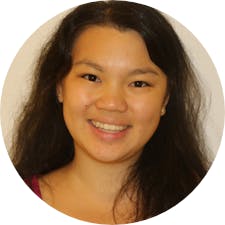My first year, I tried to so, so hard, not to tie myself to any one identity. I didn't want to be identified by my potential major, dorm, hometown, race, Myer-Briggs personality type, extracurriculars, or any other affiliations. In groups, I laughed at things when other people laughed, because hey, I could see the humor, and I tried to match the energy of whatever conversation was happening. Not exactly in the name of conforming, but in the name of understanding, of wanting to deeply understand people, in an attempt to focus more on others and not myself (or could it be out of a belief that I had nothing to contribute?).
One of my favorite Rookie Mag articles notes: “I have lived my whole life swearing there’s no truth more complete than Walt Whitman’s parenthetical line in the poem “Song of Myself”: “I am large, I contain multitudes.” I believe we are capable of anything—that anyone can be driven to do extreme harm; that anyone could be moved to radiate extreme love. I believe a person could switch from open-hearted tenderness to cruelty. I believe in nuance. I believe in contradiction. I believe in mistakes, and giving people the space, and the right, to make them.”
In retrospect, my behavior could arguably mean acting inauthentically or going against my values at times. Or it could be following what my academic advisor later noted was the moral code of most Duke students: "Do what you want, as long as it doesn't harm others." Is this in the name of being inclusive? Is this the sacrifice for being able to understand different perspectives, to push those boundaries, to be completely out of one's comfort zone?
And just as it's hard to figure out what to major in and what subjects interest us, doesn't it take adapting to different personalities and spending time around other people to know what true authenticity is?
But what about being uncomfortable in the name of being inclusive? And at what point does being uncomfortable become changing oneself? The tour groups that have been flooding campus recently remind me of a harsh reality: Across the past 4 years, over 100,000 people have applied and been rejected from this school. By merit of being a student here, we likely have benefitted from some type of exclusive program – whether it be a gifted program, a teacher who took special interest in us, the neighborhood we grew up in, or access to specific privileges in our hometowns.
Now that we're here, clubs are exclusive, social groups are exclusive, pre-orientation programs and merit scholarships provide certain students with communities before they even stepped on campus, and the exclusivity is not only a must (as is the case with SLGs which only have a limited number of beds) but almost becomes a source of pride.
But while this exclusivity may offer a seductive sense of belonging for some, it comes at the cost of harming a far greater number of others, with the rationale that “they’ll just fit in better.” Performance groups in particular often require that people have some prior skills and training beforehand, which in some cases implicitly send the message that only those with certain privileges can practice their art and deserve to be seen.
O-week in Marketplace was arguably inclusive – you could sit down at any table, and for a while, everyone got equal time during the conversation. Even if conversations were awkward and forced and overwhelming, they at least were equally so for everyone. And when we're completely settled in and comfortable and have the time and energy and willingness, making everyone feel included is simply the nice thing to do.
But what about that in between time, where things are likely still meshing, before we reach that 100% comfort zone? And will that period ever end, particularly at a busy and bustling place like Duke where being comfortable supposedly means that we're doing it wrong?
Georgina Del Vecho, in a Recess Editor's note a few weeks ago, notes that her problem with "reinventing oneself" involves the fact that it "usually becomes change from the outside in. You change your appearance; you’re now suddenly extroverted and optimistic. It just doesn’t happen that way. Just because you’re forcing an identity on yourself doesn’t mean that identity will stick."
Does inclusion mean spending time around people who are likely not going to be lifelong friends? Is it sticking with that group of o-week friends? Is there something wrong with choosing to spend more time with people with whom things simply "click" better? Or is inclusion only for specific times and places, within specific boundaries, or is it a constant goal to strive for?
If you have any thoughts, let's talk- af192@duke.edu.
Amy Fan is a Trinity sophomore. Her column, "fangirling," runs on alternate Wednesdays.
Get The Chronicle straight to your inbox
Signup for our weekly newsletter. Cancel at any time.

Amy Fan is a Trinity senior. Her column, "fangirling," runs on alternate Thursdays.
